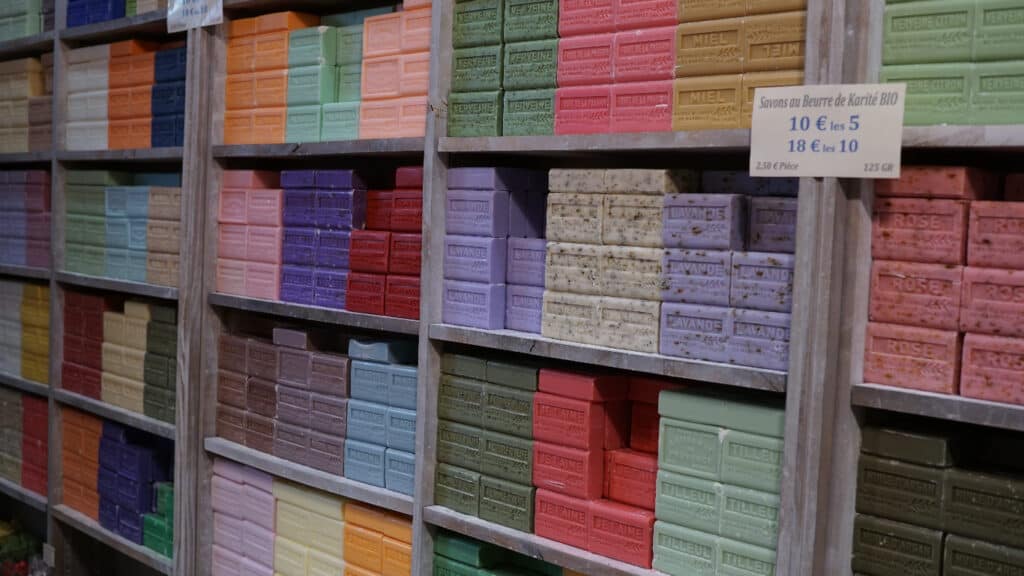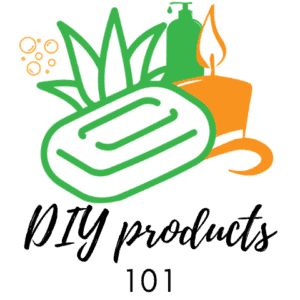You can find soaps in stores in many fragrances, sizes, and buy them at extremely competitive prices. However, these past few years, slowly but surely more and more people started to make their own soaps at home. The question is, is it worth it and above all, is it cheaper?
Making your own soap can be as cheap as buying one at the store. This can be achieved by not using expensive ingredients and buying these ingredients in bulk. And if you DIY some soap-making tools, this will lower the cost even more. When making basic soap, however, you can make it cheaper.
Whether you’re seeking a fun hobby, saving money, or pursuing a new business venture, our step-by-step guide makes crafting spa products enjoyable and easy, perfect for hobbies, saving money, or starting a business. Explore 126+ recipes, from soaps to lotions, with our beginner-friendly Quick Start Guide. Ditch store-bought products with unknown chemicals and embrace personalized, high-quality creations that cater to allergies and sensitivities using The Handcrafter’s Companion.
Although, given how convenient it is to buy commercial soaps, they might not give you the value for money. Homemade soaps are higher in quality, which usually means they will cost you more. Or at least that is what most people think. Homemade soaps can turn out to be cheaper if made cost-effectively. In fact, in some cases, even less expensive than those present at stores.
How are commercial soaps made? And what you need to know about them.

You could easily find soaps for as low as one dollar in stores. These big commercial brands have come up with soaps that can lure just about anyone into buying them. Even the best of the companies sell their so-called high-end soaps at only $3 a bar.
That is because big companies are extremely good at finding ways to maximize profit but often do this is at the cost of quality, or even in some cases, health.
Most commercial soaps these days are hardly made up of any “natural” ingredients that they promise to come with. They are full of detergents and come laden with foaming agents, artificial fragrances, and harsh chemicals that can seriously irritate or even harm your skin.
One other big reason which makes these soaps so cheap is that they have been mass-produced in factories. The per soap cost for the companies, hence, becomes manifold cheaper.
Combined with lower quality ingredients and mass productions, they can hit the markets with extremely low prices. So if you compare this with a homemade soap made by a soap craftsman, you could quickly conclude that they are cheaper.
Why is store-bought soap so cheap?

We already mentioned one or two reasons, but there is more to it, and I think it is essential to know this because it will help us understand why, but above all, help us make better decisions in the future.
Made in large batches
Unlike handmade soaps that are made with care in small batches, commercial soaps are produced in huge quantities. When a product is mass-produced in one go, the per bar cost becomes considerably low. In such cases, companies have the leverage to sell these soaps at a much lower price.
Ingredients are bought in wholesale.
Another reason why store-bought soap comes so cheap is because of the companies’ ability to buy the ingredients in bulk. If you manufacture that much, you also need a lot of ingredients.
These companies are able to get their hands on these ingredients in enormous quantities, which costs them much less than the average retail prices. In fact, I would even go and say that this is the number one factor that makes soaps cheaper.
They use cheap and harmful ingredients.
Handmade soaps are made with much deliberation and care. Only the finest of the ingredients go into making each batch. On the flip side, commercial soap companies use foaming agents and artificial fillers.
These chemically rich ingredients are far cheaper to use than pure ingredients. This is the second most significant factor that makes their soap so affordable.
They are machine-made
While artisans and skilled makers make soaps by hand, commercial soaps are mostly made by machines. Combined with speed and precision, they can produce at high speed and, at the same time, lower the labor cost per batch of soap. Fewer mistakes are made, and thus less is lost.
So after reading all of this, you would probably think, how on earth would I be able to make this cheaper at home?
Well, let’s take a look, shall we?
How much does it cost for you to make your own soap?

If you want to try your hands in making soap yourself, the cost of making will be dependent on a lot of factors. Similar to those big companies, you might need to make some changes and use different ingredients to lower your costs.
The recipe
Just like food, there equally a lot of soap recipes out there. If you opt to make a high-end bar with the best ingredients, it will logically cost you more. If you wish to make something simple, you can even make soaps that can be $7 for every loaf you make.
But let’s just say you want to use expensive types of butter and oils, you’ll still be able to make cheap soaps by getting 7-8 bars per loaf. So in all in all, when compared, it’s not that much more expensive. If you don’t go too crazy on the ingredients, and you’ll be just fine.
The ingredients
As mentioned above, if you wish to use expensive ingredients, you’ll end up paying more, so depending on the ingredients (and recipe) and extracts you opt for, the cost per loaf will vary. You might not use color in your soap, or you can simply use one type of oil instead of two (just make sure to use a calculator).
The big difference? You are in complete control of what’s inside, and you can choose what type of soap you make. You’d have much higher quality, and there are much fewer chances for skin irritation or any kind of harm, for that matter.
Cost of tools
You will require some tools before you start engaging in soap making activities. In this article, I mentioned how much it costs to make soaps as a hobby, but it also gives you an excellent overview of what you need to get started. Here are some basic tools that you’ll require to make soap:
- Safety Gear:
- Sodium Hydroxide Lye:
- Stick Blender:
- Easy Pour Containers:
- Infrared Thermometer:
- Silicon spatulas & Whisks:
- Silicone and wood molds
The total cost of buying such tools can be anywhere from $50-$150.
This may sound a lot, especially when comparing it to that $1 soap at the store. But don’t forget, this is a one-time cost. After this, you only need to buy ingredients.
Is it worth making your own soap?
Yes! It is definitely worth making your own soaps at home. When you make soaps at home, you can take care of many factors into your own hands. These are:
- You can decide the ingredients that you want your soap to have. You don’t have to worry about chemical-laden store soaps anymore.
- You can use sustainable and ethically harvested ingredients.
- It can with some tweaking be more cost-effective than commercial soaps and has, on top of it, also skin benefits.
- You will have glycerin in your soaps, which is most of the time subtracted from commercial soaps.
- Finally, you will be able to make soaps at home repeatedly once you’ve bought the tools you need.
- Making soap can have a therapeutic value physically, socially, cognitively, and intrapersonally.
The costs will be almost the same, you might pay slightly more, but the value you get out of it will be much more than any cheap store-bought soap.
Is there a way to make handmade soap cheaper?

You can bring down the cost of making soaps cheaper at home even lower by taking the help of these following tips:
Make your own mold
Making your own mold is probably the one thing that will make a significant price difference. You can easily use items found at home to give shape to your soap.
For example, instead of buying a new silicone mold, you can also use half-cut milk cartons or even cups that come with yogurts. But if you do opt for plastic mold, you’ll be able to use it for a long time.
Cutting your soap
You need to cut your soap, and you can do that by using several tools. You can use a sharp knife or a dough scraper or make your life easier by using a loaf cutter loaf. You can even use a metal wire if your hands are steady. But if you are going to cut a lot, I would recommend buying a tool for it or buying a soap cutter.
Don’t want to spend money on it? No problem! Make your own:
Choose less-expensive oils
While making handmade soaps, you can turn to cheaper oils. This doesn’t mean you need to take the same route as those big companies and buy the cheapest you can get.
Some oils can be replaced by cheaper ones, and you won’t even see or smell the difference (like castor, olive, coconut, palm, or even sunflower oils). Just do some research online, and you’ll see that artisan most soap makers use the same.
Buy your ingredients in bulk.
If the possibility exists, you should, without a doubt, buy in bulk. If you want to lower the cost of making soaps, even more, buying your ingredients in bulk will save you a lot of money.
You can purchase oil bottles that are greater in quantity, as this will last for a long time. The bigger the size you go for, the less it costs per pound.
Just a word of caution, I have read this quite a lot online, when people start buying in bulk, they end up not using them, and after a while, when oils get rancid, they have to throw it away. So I would only advise doing this once you know you will make that much soap.
Use ingredients in your home
If you just started and don’t want to spend a lot because you are not sure if soap making is for you. You can use ingredients that you can easily find at your home. You don’t have to fret about buying colors for your soap since this is just a trial run anyways.
You can even use ingredients like cocoa powder to give a pop of color to your soaps. What’s more? You can even use vegetable juice (especially that of beetroot) to get natural dyes for your soap.
Summing Up
Handmade soap is full of benefits – it is better in quality and is safer for the skin. Store-brought soaps on the flip side may come in cheap but are full of harmful chemicals. They strip the skin of its natural oils and make it dry and flaky.
You can replace commercial soaps with easy to make handmade soaps. With some tools and ingredients, you can start making your own soaps at home!


